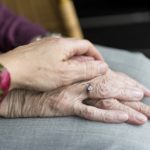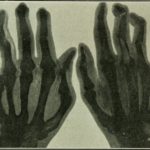Upon being asked the question, “what is home healthcare?” many people will have only a vague knowledge of what to answer. A lot of people associate home health care with caring for the elderly. While caring for the elderly is certainly part of home health care, there’s much more to it than elderly care at home. Home health care can consist of various other types of treatment and therapies. Seeing as many home health care programs are highly effective – sometimes even more so than hospital care – it’s good to explore different kinds of home healthcare in case you or a family member could benefit.
Is Home Health Care Effective?
Before looking at different home health care options, it’s important to establish whether healthcare at home offers any advantages. There’s no point in considering home healthcare for a loved one if it’s not effective, after all.
When looking for effective home health care, one of the most important things to look for is whether a provider is Medicare- or Medicaid-certified. Always opt for a certified provider if possible. Certification helps show that the company you’re dealing with is reputable.
If you’re dealing with a certified provider, the outlook for home health care is good. One study from the University of Rochester School of Nursing found that home health care reduced re-hospitalization among older patients. Among the therapies included in the study were physical therapy, occupational therapy and skilled nursing.
Many other studies have found similar results, demonstrating how home health care helps to reduce the risk of re-hospitalization in patients.
To get good results from home care, the most important thing is that care providers must be adequately qualified and trained. When patients receive care from individuals with the same qualifications as hospital staff, results will be similar to that of hospital or nursing home treatment.
What is Home Health Care? Different Types of Home Care
In-home care for the elderly is a major part of home health care. However, many of the health care services that elderly persons benefit from also apply to people of other ages. Various different services and therapies are aimed at helping disabled individuals live at home comfortably and safely. Seeing as home health care helps to prevent readmission to hospital among the elderly, it’s especially effective for this demographic.
Popular home health care services among elderly and disabled persons can include the following:
- Physical therapy
- Respiratory therapy
- Occupational therapy
- Nursing
- Health aides
Each one of these forms of home care can help prevent readmission to hospital, or perhaps even avoid hospitalization to begin with. Another advantage is that people who receive home health care often live more independently within the comfort of their own homes, as opposed to living in a nursing home or other facility.
Physical Therapy
Physical therapy, also called physiotherapy, often involves massage, acupuncture and other techniques to relax muscles, relieve nerve tension and improve movement. Many patients can benefit from physical therapy, even patients who don’t suffer from any ailment.
Examples of persons who can benefit from physical therapy include the following:
- People who are athletes, or are active and follow a strict workout routine
- Patients who suffer from muscular-skeletal ailments, leading to chronic pain
- Persons who experience chronic muscle pain as a result of a physically challenging occupation – even persons who work desk jobs could benefit
- Patients who suffered physical injury resulting in loss of movement or severe muscular injury are often prescribed physical therapy as part of their rehabilitation program
- Similarly, stroke survivors can be prescribed physical therapy to help recover muscular function as much as possible
The list could go on and on. Physical therapy can benefit even seemingly healthy people. For example, a lot of people seem healthy, but have poor posture. Poor posture can lead to backaches, neck pain and muscle tension. Physical therapy can assist in helping persons with poor posture retrain their muscles to improve posture.
Occupational Therapy
A lot of people think that only children need occupational therapy. Other people mistakenly believe that occupational therapy is mostly for adults. The truth is that both children and adults might require some form of occupational therapy in their lifetimes. This is because occupational therapy is about the needs of the individual patient, not his or her age demographic.
Specifically, occupational therapy is aimed at helping patients perform everyday activities through improving motor skills and coordination.
For children, therapy often focuses on learning new fine motor skills like writing or using scissors. Therapy can also involve training of coordination to help a child use a computer mouse or catch a ball.
Occupational therapy for the elderly and disabled focuses on helping them perform everyday activities. During an occupational therapy session, an adult might relearn life and motor skills that assist in everyday tasks.
For instance, an occupational therapist might focus on helping a person with physical challenges to cook and do their own homemaking. For a severely challenged person, occupational therapy can be as simple as teaching them to eat and dress themselves.
Any person suffering from impaired movement after an accident or as a result of age could benefit from occupational therapy.
Respiratory Therapy
Respiratory care might sound like a strange concept. Why should anyone have to learn how to breathe? But don’t underestimate the benefits of respiratory care. Many patients can benefit immensely.
Firstly, respiratory therapy isn’t always focused on helping patients learn how to breathe. Assisting a patient to breathe through life support is also considered respiratory therapy. While most people take breathing for granted, patients struggling with asthma, lung damage and similar breathing difficulties often need medical intervention to manage their conditions.
Examples of conditions that might require treatment through respiratory therapy include:
- Asthma
- Emphysema
- Bronchitis
- Sleep breathing disorders
Respiratory therapy can also be beneficial after a patient who suffered a heart attack.
Premature babies are another demographic who can benefit from respiratory therapy. Proper development of the respiratory system is one of the last things to develop in the womb. As a result, babies that are born prematurely might have more difficulty breathing. Respiratory therapy can often help such infants to develop a strong, healthy respiratory system after birth.
Nursing
Nursing is a common home health care service among the elderly, but patients from all ages can benefit. Often times, childhood genetic disorders mean that children need to receive special medical care at home. Some patients also need in-home health care after suffering severe injuries.
In-home nurses offer the same assistance as nurses in hospital would. Things like wound care, medicine management and IV administration can all be done at home.
However, you shouldn’t expect your nurse to perform the work of a qualified physician. An in-home nurse won’t, for instance, be able to adjust the dosages of medicine prescribed by your doctor. Nurses can only administer the correct dosages as prescribed.
While your nurse can’t change the care plan recommended by your doctor, he/she will ensure your loved one gets the exact care your physician recommends.
All in-home nurses must be either registered nurses or licensed practical nurses. Be sure your home care provider uses properly qualified nurses in all applicable cases — where patients have needs requiring professional health assistance.
Health Aides
Health aides aren’t qualified nurses, but they do undergo training to perform their job. While nurses help to administer medication to patients and other health care tasks, health aides help disabled persons with day-to-day activities.
A health aide can help patients by performing homemaking duties and assisting in bathing and feeding.
Another important role of health aides is providing companionship. Elderly and disabled persons are often lonely at home. While some elderly people are fortunate to live with family, other household members are often at work or school during the day. As most persons requiring care are unable to perform many basic tasks themselves, they need aides to avoid loneliness and accomplish daily activities.
Although health aides often help elderly people, disabled persons of all ages could benefit from this home health care service.
Benefits of Home Health Care
Home health care isn’t an option in all situations. Patients that need surgery, or suffered severe trauma still need to go to hospital to get the care they require. Instead of replacing hospital care, home healthcare is often applicable once a patient is discharged as a means to facilitate recovery.
The benefit is that home health care options often allow for patients to be discharged from hospital sooner. This allows a patient to recover in the comfort of their own home. Being in a familiar environment surrounded by loved ones is a clear benefit.
Another benefit is reduced health care costs. Especially in cases where it will take a patient many months to recover, home health care is cheaper than hospitalization.
For a lot of people, however, the biggest benefit of home health care isn’t the cost, but convenience. Having a health care professional come to your doorstep to assist you with your care needs is easier than going to a hospital or a health care practice.
Ongoing health care treatment is often burdensome, especially for patients with impaired movement. Leaving home to receive medical treatment is arduous, even stressful at times. To make matters worse, patients who visit a practice often end up spending a lot of time in the waiting room before each appointment. Home health care is a great choice to reduce the stress involved with ongoing health care treatment while also cutting costs.




